#Up municipal election schedule
Explore tagged Tumblr posts
Text
यूपी में नगर निकाय चुनाव की घोषणा पर लगी 20 दिसंबर तक रोक, हाई कोर्ट का आया बड़ा फैसला
यूपी में नगर निकाय चुनाव की घोषणा पर लगी 20 दिसंबर तक रोक, हाई कोर्ट का आया बड़ा फैसला
UP Municipal Election Date Announcement News: उत्तर प्रदेश में नगर निकाय चुनाव की घोषणा पर हाई कोर्ट ने 20 दिसंबर तक के लिए रोक लगा दी है। इलाहाबाद हाई कोर्ट के लखनऊ बेंच में बुधवार को हुई सुनवाई के बाद यह फैसला सामने आया है। राज्य नि��्वाचन आयोग को इस संबंध में आदेश जारी कर दिया गया है।
View On WordPress
#allahabad high court lucknow bench#Latest Metro News#Lucknow high court order#Metro Headlines#Metro News#Metro News in Hindi#Up Municipal Election 2022#up municipal election date#Up municipal election schedule#up nagar nikay chunav#up nagar nikay election#up news#मेट्रो Samachar#यूपी नगर निकाय चुनाव 2022#हाई कोर्ट ने निकाय चुनाव की घोषणा पर लगाई रोक
0 notes
Text
The end of the six-day work week and the fight against genocide mark the Black Consciousness March in São Paulo
The 21st edition marched from Paulista Ave to the Municipal Theater; organizations celebrated it as a national holiday

Under the motto, “Palmares stands tall, and racism falls. Zumbi and Dandara live in us!” demonstrators walked from Paulista Avenue to the Municipal Theater in central São Paulo during the 21st Black Consciousness March on Wednesday (20). Support for the Proposed Amendment to the Constitution that ends the six-day work week, authored by federal deputy Erika Hilton, was the highlight of the march, which also demanded an end to Black genocide in Brazil and celebrated November 20 as a national holiday for the first time.
In addition to Erika Hilton, other parliamentarians were present at the march, including state deputy Ediane Maria, the first domestic worker elected to Legislative Assembly. Maria pointed out that her fellow workers are still "locked up in family homes." "Overturning the six-day work week schedule is fighting for dignity," she said, arguing how this would benefit the category to which she belongs.
Elected as a counselor in São Paulo, Amanda Paschoal also highlighted the need to end the current working hours provided for by the Brazilian laws for the benefit of the Black population. "This exploitative schedule needs to end. We will remain articulate, quilombos [community formed by enslaved people who escaped their enslavers], occupying the streets, Parliament, and all spaces of power to guarantee the bright future the Black community deserves."
Continue reading.
#brazil#brazilian politics#politics#antiracism#workers' rights#image description in alt#mod nise da silveira
16 notes
·
View notes
Text
Last week, Germany’s domestic intelligence agency took the dramatic step of classifying the Saxony state branch of the Alternative for Germany (AfD) party as a threat to democracy—a potential first step towards banning it outright as unconstitutional. “There can be no doubt about the extreme right orientation of this party,” declared Dirk-Martin Christian, president of Saxony’s State Office for the Protection of the Constitution.
Although Germany has, in the past, exercised constitutional powers in the name of domestic security to rein in hardcore far-right (and radical leftist) forces, the objects of censure were marginal neo-Nazi parties and associations that had no chance of coming to power—even at the municipal level or in coalition governments. The AfD is a different story. Opinion polls show the AfD as the strongest party by far today in eastern Germany; riding a powerful wave of anti-immigrant sentiment, it has also notched record tallies in western German state elections and is poised to win the most votes next year in the country’s eastern half. It could conceivably wield executive power, should conservatives—such as the Christian Democratic Union (CDU) or the pro-business Free Democratic Party (FDP)—consider it in their interests to treat the far-right party as a legitimate expression of popular will.
Even though both parties say they rule it out, the option is not so far-fetched: Across the EU, conservative parties have turned far-right parties into governing coalition partners, including in Austria, Croatia, Denmark, Finland, Italy, Slovakia, and elsewhere. In the German state of Thuringia, the CDU, FDP, and AfD, all in the opposition but with a majority between them, now team up occasionally to bypass the leftist minority government.
Suddenly, Germans are seeing images of the political chaos of the interwar Weimar Republic flash before their eyes—the republic that ended ignominiously in the Nazi party’s victory and Adolf Hitler’s takeover in 1933.
This is why the agency’s ruling and a possible injunction against the AfD—the latter a highly controversial and risky option that is nevertheless gaining backers across Germany’s political spectrum—has observers questioning whether the Europe-wide surge of the far right can be stopped or slowed by legal measures.
The strategies pursued by the political class haven’t done the job thus far—on the contrary, the AfD is booming—and there’s a long history of banning extremist parties and associations in Europe, not least in Germany. Since mid-2022, both Germany and France arrested members of far-right extremist organizations involved in the planning of terrorist attacks. Under its autocratic leader Viktor Orban, Hungary, as well as authoritarian-ruled Poland, have been denied European Union funds, and in 2019, Orban’s party, Fidesz, was expelled from the mainstream conservative European People’s Party.
But Fidesz’s ouster wasn’t a prohibition, and the extremists in France and Germany did not belong to parties with representatives in the national parliament. In fact, the AfD is the second-largest opposition party in the German Bundestag after the Christian Democrats (and their Bavarian counterpart), and it says that it wants to come to power—democratically, through the ballot box.
The ruling makes Saxony the AfD’s third state branch to come under this level of red-button surveillance, which can include measures such as the German spy services’ covert observation and even infiltration of the party. All three state-level parties—Saxony, Saxony-Anhalt, and Thuringia—are eastern German states with elections scheduled for next year. (In mid-April, the AfD’s nationwide youth organization was also deemed a threat to the democratic order and thus put under surveillance.)
Moreover, in the wake of Geert Wilders’s far-right Party for Freedom’s victory in the Netherlands in November, like-minded contenders across Europe, including the AfD, are expected to perform better than ever in June’s European Parliament election, an event that would have ominous ramifications for the European Union—and beyond.
Much like the rulings on Saxony-Anhalt and Thuringia, Germany’s intelligence agency declared that leading members and functionaries of the Saxony AfD regularly express racist, Islamophobic, and antisemitic sentiments. It labeled the branch as one with “typically ethnic-nationalistic positions” and said that both it and its national youth organization work in tandem with known neo-Nazi and officially banned movements, such as the Reichsbürger movement.
The Saxony branch has a diverse membership, the intelligence agency found, but the party’s leadership adheres to the ideology of its “spiritual father and leader,” referring to “the right-wing extremist Björn Höcke, who now shapes and dominates the character of the entire state-level party.”
Höcke, the AfD’s high-profile, outspoken party leader in Thuringia, was on the party’s far-right fringe for years. But the party has drifted so far to the right that its standard-bearer is now the 51-year-old Höcke , a demagogue who publicly espouses revisionist theories of Germany’s Nazi past and employs racist slogans against immigrants. He was charged in June with using Nazi slogans at AfD campaign rallies—a crime in Germany, where the use of slogans, propaganda, and symbolism linked to “anti-constitutional” organizations is banned.
German law gives the constitutional court the authority to shut down a political party when it pursues anti-constitutional goals and is in a position to achieve these goals. In 2017, Germany’s highest court chose not to disqualify the National Democratic Party of Germany (NPD), a thoroughly neo-Nazi party both in public profile and programmatically, on account of its diminutive size: The party of 6,000 people rarely breached the states’ 5-percent hurdles to be included in parliament and thus never came anywhere near entering government. This autumn, the constitutional court confirmed the expulsion of a former AfD official as a justice in a Saxon state court for constituting a danger to constitutional norms.
This year, the AfD saw representatives voted into official posts as a district administrator and a mayor (in Saxony-Anhalt) for the first time. Presumably, the AfD’s recent showing in the Bavarian and Hessian elections (15 percent and 18 percent respectively, which makes it the strongest opposition party in the regional legislatures) and polling numbers of twice that in eastern Germany endow it with a size unlike the NPD’s and great enough to pose a legitimate threat.
This, at least, is what a growing number of voices from all of Germany’s mainstream parties argue. Those voices are collecting supporters in the Bundestag, where a majority is required to bring the party before the constitutional court.
One of them is a lawyer and CDU parliamentarian from Saxony, Marco Wanderwitz, who argues that “there’s a good reason why the [German Constitution] gives us the option of banning a party,” as he told the daily Die Tageszeitung, “because a defensive democracy [wehrhafte Demokratie] has to wield very sharp swords against its greatest enemies. I have come to the conclusion that the AfD is now undoubtedly radical right wing. They are up to no good and are serious about it. We’ve got to use all of the options at our disposal to beat them. I’m afraid that without a court-ordered prohibition, we’re not going to be rid of them.”
Living in Saxony, Wanderwitz said, he observes how the AfD and its even more militant counterparts draw in disillusioned people and set a confrontational, aggressive tone. “In the parliaments, the AfD is on our backs every day,” he said. “It has thousands of employees who flood the internet and parliaments with right-wing extremist content 24 hours a day. At events in Saxony, I regularly experience that we’re met with burning hatred; we’re shouted at and threatened. I’m glad that there are loads of people standing between us and them outside the door. It’s something that feels a bit like what I imagine the early 1930s were like.”
Wanderwitz added that he thinks it is conceivable that the AfD garner 40 percent in the eastern elections come September. “What democracy here needs is some breathing space,” he said.
Other commentators shoot back that Germany’s democratic culture and the solid arguments of its political parties can beat back a populist party that spins outlandish conspiracy theories, apes Nazi slogans, and wants out of the EU.
“We can’t give the impression that we’re taking the easier route with a ban procedure because we can’t manage it any other way,” retorted Social Democratic lawmaker Sebastian Fiedler, who belongs to the Bundestag’s subcommittee for domestic security. “Well-functioning constitutional states can’t dismiss the way their own populations vote. We have to offer concepts that are convincing: here and now. Of course, the AfD is trying to attack the state from within, but the constitutional state is resilient.”
Fiedler and his parliamentary peers—not all of whom are opposed to putting the AfD on trial—argue that the state has other means at its disposal to mitigate far-right parties. In November, all of the Bundestag’s democratic parties passed a law that deprives the AfD from the kind of public funds that other parties use to finance foundations involved in public education work. They also argue there should be more funding for grassroots programs that strengthen civil society and fight fake news in the Internet. Wanderwitz and Fiedler—and just about all of their colleagues—agree that putting the AfD on trial and then losing would be a disaster, as well as a confirmation for the AfD that the mainstream parties are out to get it, based on the party’s specious rationale.
One of the strongest arguments against such bans is that outlawing a party doesn’t annul its supporters—and sometimes even turbocharges them. The Germans need only to look to Greece to see how the prohibition of a far-right party, the Golden Dawn, did nothing to dent the vote tallies of the Greek far right, which reorganized itself under new parties. Golden Dawn itself was disqualified from running in the election this year not because it was an immigrant-bashing, Holocaust-denying scourge, but rather because its leaders had engaged in criminal business activities.
Nevertheless, the party that captured more than 6 percent of the vote in 2015, when economic paralysis gripped the country, was out of the race. Instead, in June, three far-right parties made it into the national legislature, comprising the Spartans, backed by imprisoned Golden Dawn leader Ilias Kasidiaris, the pro-Russian party Greek Solution, and ultra-Christian Orthodox Niki (Victory). They captured 34 seats out of an available 300 and accounted for more than 12 percent of the vote.
It seems that Germany and Greece—in fact, just about all of Europe—will have to dig further down into their respective legal scriptures and political cultures to get at the toxins that threaten to imperil their democracies.
30 notes
·
View notes
Text
ATLANTA (AP) — A new reactor at a nuclear power plant in Georgia has entered commercial operation, becoming the first new American reactor built from scratch in decades.
Georgia Power Co. announced Monday that Unit 3 at Plant Vogtle, southeast of Augusta, has completed testing and is now sending power to the grid reliably.
At its full output of 1,100 megawatts of electricity, Unit 3 can power 500,000 homes and businesses. Utilities in Georgia, Florida and Alabama are receiving the electricity.
Nuclear power now makes up about 25% of the generation of Georgia Power, the largest unit of Atlanta-based Southern Co.
A fourth reactor is also nearing completion at the site, where two earlier reactors have been generating electricity for decades. The Nuclear Regulatory Commission on Friday said radioactive fuel could be loaded into Unit 4, a step expected to take place before the end of September. Unit 4 is scheduled to enter commercial operation by March.
The third and fourth reactors were originally supposed to cost $14 billion, but are now on track to cost their owners $31 billion. That doesn’t include $3.7 billion that original contractor Westinghouse paid to the owners to walk away from the project. That brings total spending to almost $35 billion.
The third and fourth reactors were originally supposed to cost $14 billion, but are now on track to cost their owners $31 billion. That doesn’t include $3.7 billion that original contractor Westinghouse paid to the owners to walk away from the project. That brings total spending to almost $35 billion.
The third reactor was supposed to start generating power in 2016 when construction began in 2009.
Vogtle is important because government officials and some utilities are again looking to nuclear power to alleviate climate change by generating electricity without burning natural gas, coal and oil.
“This project shows just how new nuclear can and will play a critical role in achieving a clean energy future for the United States,” Southern Co. CEO Chris Womack said in a statement. “Bringing this unit safely into service is a credit to the hard work and dedication of our teams at Southern Company and the thousands of additional workers who have helped build that future at this site.”
In Georgia, almost every electric customer will pay for Vogtle. Georgia Power currently owns 45.7% of the reactors. Smaller shares are owned by Oglethorpe Power Corp., which provides electricity to member-owned cooperatives, the Municipal Electric Authority of Georgia and the city of Dalton. Oglethorpe and MEAG plan to sell power to cooperatives and municipal utilities across Georgia, as well in Jacksonville, Florida, and parts of Alabama and the Florida Panhandle.
Georgia Power’s 2.7 million customers are already paying part of the financing cost and elected public service commissioners have approved a monthly rate increase of $3.78 a month for residential customers as soon as the third unit begins generating power. That could hit bills in August, two months after residential customers saw a $16-a-month increase to pay for higher fuel costs.
Commissioners will decide later who pays for the remainder of the costs of Vogtle, including the fourth reactor.
79 notes
·
View notes
Text
Ryan J. Reilly and Jane C. Timm at NBC News:
High-profile right-wing influencers were briefed on House Speaker Mike Johnson’s voter registration bill well in advance of its announcement in what appears to be a coordinated social media campaign meant to drum up support for the legislation, which is dead on arrival on the Senate. Conservative influencers posted dozens of times before Johnson, R-La., publicly announced the bill alongside former President Donald Trump at Trump's Mar-a-Lago estate in Palm Beach, Florida, calling on Congress to pass the bill, which has not yet been filed, and offering policy details that are still not available to the public.
The legislation targets voting by noncitizens, which is already illegal and very rare. Johnson appeared at Mar-a-Lago at a time when his speakership is in a precarious position, with attacks from far-right Rep. Marjorie Taylor Greene, R-Ga., who has a significant social media following. Getting some public support and praise from Trump could give Johnson a bit of protection with the Republican base, as could drumming up support from conservative social media influencers. At 3:50 p.m. ET Friday, Ryan Fournier, the chair of Students for Trump, who boasts a million followers on X, appears to have been the first to have posted the name and details of the bill. Johnson’s news conference was scheduled to begin at 4:30 p.m. ET Friday, but it began just after 5 p.m. Neither Johnson nor his office would provide specifics about the legislation before Friday's event when they were asked by NBC News. His office confirmed Monday that background information about the bill had been sent in advance to conservative-leaning influencers but did not specify which influencers.
In the hours leading up to Johnson and Trump's news conference, social media posters, including Libs of TikTok, DC_Draino and EndWokeness, promoted the legislation online. They all called the bill “the SAVE Act,” though Johnson did not name it as such. "PASS THE BILL,” DC_Draino (Rogan O'Handley) wrote at 4:22 p.m., claiming the bill “would require blue states to obtain proof of citizenship for voter registration.” On X, EndWokeness wrote that the bill would add penalties for election officials’ registering noncitizens to vote. Rep. Chip Roy, R-Texas, reposted EndWokeness’ post at 4:40 p.m., saying he had authored the bill. A spokesman for Roy said the bill has not yet been filed yet, but Roy posted a screenshot of the first few lines of legislation before Johnson's speech. The bill is dead on arrival, with Democrats controlling the Senate. Johnson said Friday, though, that simply putting the bill to a vote would be "interesting."
"When we put this bill on the floor, you're going to see a record vote by Republicans and Democrats," he said. "They're going to have to go on record. Do you believe that Americans and Americans alone should be the ones who vote in American elections? We're about to find out their answer." It is illegal for noncitizens to vote in state and federal elections, though some municipalities allow noncitizen voting in local elections only.
Chrissy Clark, a conservative influencer who contributes to Turning Point USA, appears to have been one of the people who received early information about the legislation.
[...] Another conservative influencer, Isabella DeLuca, posted about the legislation at 5:07 p.m., the minute when the news conference began. "Speaker Johnson just introduced the SAVE Act, a pivotal measure to fortify our democracy and save our elections," DeLuca wrote on Twitter.
Want more proof the conservative media apparatus controls the GOP’s agenda? Speaker Mike Johnson (R-LA)’s team briefed right-wing influencers such as Rogan O’Handley (DC_Draino), End Wokeness, and Libs of TikTok on a bill that purports to target noncitizen voting (which is already illegal for federal elections).
See Also:
The Advocate: Mike Johnson briefed right-wing influencers including Libs of TikTok ahead of election bill announcement
#Mike Johnson#Donald Trump#Rogan O'Handley#DC_Draino#End Wokeness#Libs of TikTok#Chaya Raichik#SAVE Act#Voter Registration#Noncitizen Voting#Ryan Fournier#Students For Trump#Chip Roy#Chrissy Clark#Turning Point USA#Isabella DeLuca
3 notes
·
View notes
Text
Two of Pentacles

In the Two of Pentacles, a youthful individual dances while juggling two coins in their hands. The infinity symbol links the coins, suggesting that this person can handle unlimited problems so long as they manage their time, energy and resources well. In the background, two ships sail the high seas, bobbing up and down on the huge waves – another sign that the ups and downs of life are manageable with focus and attention.
-
Hellur. I’m finally forcing myself to sit down and write. It’s been quite a month… But I finally feel like I’m firmly standing on two feet.



The municipal election’s delegation was… an experience. I helped out as the ‘call center’ on the day of elections, logging every big observation that happened during the day. I also helped to make a slideshow for the CIS’ press conference. I was a brave girl!
A journalist asked to speak to a few of observers outside in the parking lot where we were having the press conference. They wanted to meet in the parking lot because they were concerned about their security. They told observers that few members of the press came to the conference and that those that came didn’t really ask questions because they had been intimidated and didn’t want to write anything that could be perceived critical of the government. So, take from that what you will.
After we finished speaking, everyone came up to me and said that they thought that the slideshow was really powerful and that it was good we showed it; but Leslie cautioned that they could come and arrest us for showing it, which made me spiral out of control.
Buying produce at the market and having conversation in the car on the way to the beach grounded me into reality and helped me to calm down as best as I could.
Tom, in his old age and with his wisdom, very dryly told me that one day, my grandchildren would ask me about what I was doing when democracy was dying in the 2020s and that I’d gleefully tell them about my various stints in jail. Roberto distracted me by asking me about my theological studies; which actually really helped me to develop the paper I was working on for my socio-theological analysis of the Latin American reality.
Being at the beach was like taking one big benzo. I swung myself in the hammocks. I drank a lot of coconut water. I worked on one of my Paint By Diamonds projects. I watched the sunset. I had delicious seafood. I swam in the pool. I drank rum. I laid out in the sun. I walked on the beach. I ate junk food. I looked up at the stars. I made a very strange vegetarian meal for Tom and I. I released baby sea turtles into the ocean. I listened to music. I learned a lot about Mormonism and gossiped about my love life with Roberto’s sister. I got a massage. I enjoyed air conditioning.






When we got back home from the beach though, it was like life slapped me in the face. I struggled to balance my school work along with my volunteer work. My sleep schedule was all over the place. And then, I was away again, in Suchitoto.
Brooke, Tom, and I went out there because Tom was teaching a women’s self defense class to women a part of the feminist collective. He taught me some moves too so it’s safe to say I could beat some asses.
A lot of time away was dedicated toward work; both in the academic sense and the volunteer sense. Analyzing observer data on the elections gave me a headache and Brooke and I went back and forth for hours.
When we weren’t working though, we were soaking up all of life’s special moments. On the first night we went to one Mexican restaurant which had subpar food but entertaining characters. I stopped at the tienda afterward and got myself some peach yogurt, which was delicious. The next night, we went out to a fancy restaurant, Casa Flamenco. We sat in this little cabana which had a table for three.
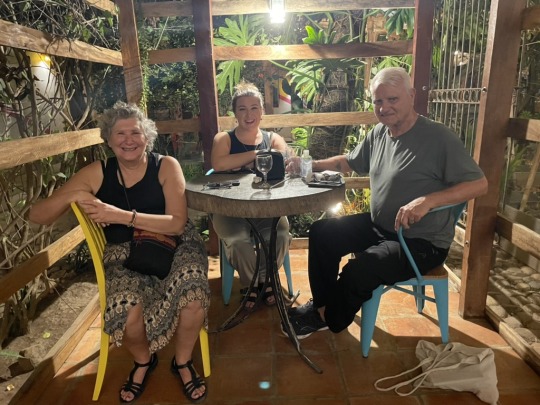
Brooke got us a bottle of wine and boy did we drink ourselves into a delight! We split cauliflower wings with a buffalo and a tamarindo sauce, had the silliest portion size of this creamy tomato pasta, and enjoyed coffees with brownies a la mode for dessert. The restaurant also had a little store and I got Paulo Freire’s The Politics of Education. On our walk home, we got a little lost but I made a friend in the park and he drove us home for 50 cents each. The next night we went to another nice restaurant overlooking the town square, but I don’t remember what it was called. I had a delicious smoothie and veggie sandwich. After we finished eating, Brooke and I checked out the church.
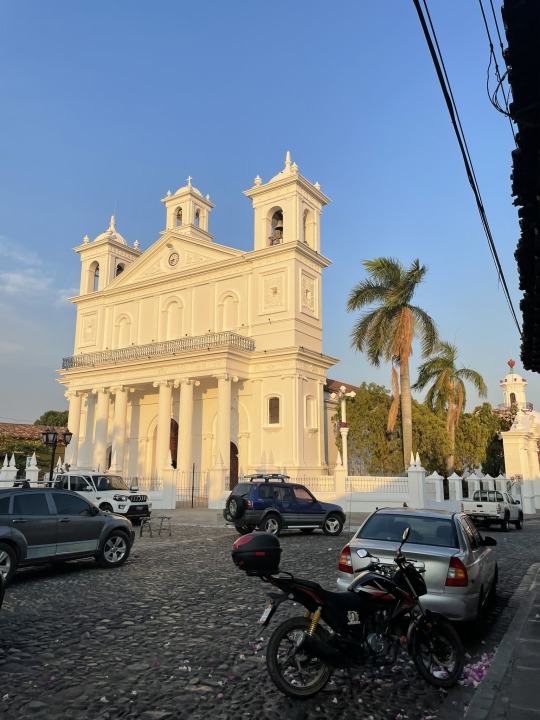

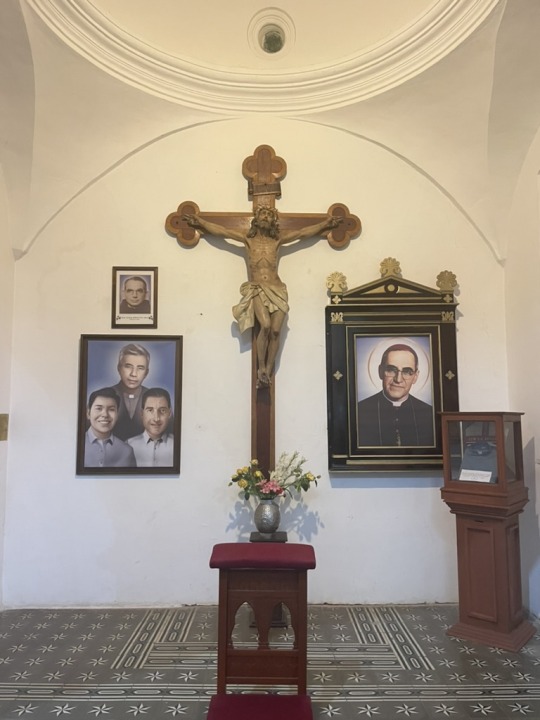
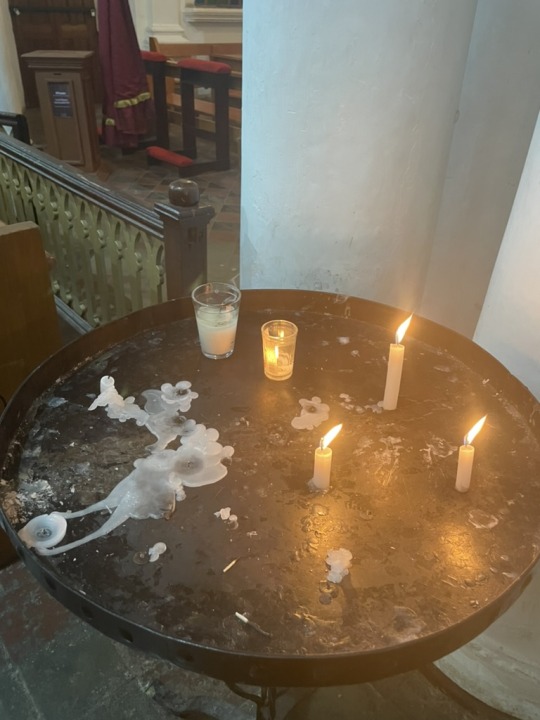
They were just wrapping up mass when we walked in and a very young, dare I say Fleabag-esq, priest came up to us. He was blown away that Brooke was Jewish, Tom was Buddhist, and I was an agnostic theology student at the UCA. It was fun to chit chat with him. We then hung out just the three of us in the park, people watching, sharing stories, recommending movies and shows. Thankfully, we did not get lost on our way back to the hotel. The next morning, we had breakfast (I especially enjoyed the partly frozen orange juice) and packed up. We were extremely lucky to get the last three seats on the bus back home. I arguably had the best seat, I was in the back corner, with leg room.
A man preached on the bus and we made eye contact with each other practically the whole time he spoke. I always end up doing that, which is unwise, but it’s in my nature! I gave him my contact information so that he could reach out to me for an interview if he wanted one for my book. The Faith Across Identities project is alive and well! I’m also going to be interviewing a woman from the island whose son was wrongfully imprisoned… She has a very interesting faith.
When we got to the bus terminal we bid our farewells and I got in an Uber to take me home. I was tired and wanted silence on the ride home, but my Uber driver wanted dialog… We had a whole discussion about the flaws of the church and organized religion. I think he expected me to be against him because it felt like he wanted to fight me the entire time… By the time I got home, I was glad to be in bed. I lazed around, took a nice shower, and ordered takeout, spending the rest of the day watching my shows.
The next week I finally completed my first big paper as a graduate student! I sound like a church elder throughout the entire thing, but there’s just this sense of security I get writing about the Salvadoran reality from a spiritual stance instead of a purely sociological stance… Which makes no sense, considering how the government has an extremely violent past with the religious… But still, I feel sheltered and protected by the church… It’s the strangest thing.
Speaking of the spiritual, I’ve started one of my more spiritual oriented classes. It’s titled, The Mystery of God. It’s pretty chill to be honest. We’ve just been analyzing different pieces of art debating how it depicts God. I choose to focus on Nezahualcoyōtl’s poetry, specifically his poem Inside Heaven. He was an Aztec ruler right before the conquest; he is known for making the first Aztec temple that prohibited blood sacrifices, among many other things! I’ve also been reading a lot of church documents that have originated from Latin American clergymen. I am continually amazed by how the church as an institution operates as such a fierce advocate for justice down here. It is such a privilege to study this subject and I can’t wait to one day share all that I’ve learned with students back home.

But, I’ll admit, it has been hard to reach this point. While those closest to me support me unequivocally, some have given their unsolicited advice and really soiled my spirit, making me feel like the way I’m choosing to do things is the wrong way to do things. I know that what I do doesn’t make that much sense. But does it really have to make sense to people if it’s not their life?
Someone I got dinner with told me to drop out of my program, unprompted. I was pretty perplexed by their perspective, especially given that I had earlier stated how exciting the challenge of studying in Spanish was and how I felt like I was finally finding answers to questions I had begun to ask myself in 2021. I brushed their commentary off and reminded them the reasons why I was doing what I was doing and then they seemingly got angry with me, invalidating my choices once again.
On my walk home from the dinner, I started to spiral out of control and second guess myself. Afterall, I’m some white woman in my 20s all alone in some other country studying in a program that’s mostly made up of retirees who are devoutly religious. I’ve had to deal with so much red tape, from both the Salvadoran and the US government. It is not easy.
But, I’m doing what I want to do! And on the bright side, that spiral that they sent me down brought me lots of revelations. I can confidently say that I’ve got a damn good solid plan for my future. One that seeks to serve others and not just myself, too!
Anyway! I met up with Joel, one of my contacts from the national university, and we went to the market together. I bought some pretty colored candles and crazy glue. After we left the market we went back on campus and chatted. He told me to think of fear like it was an invasive instinct; something that didn’t belong in our lives and that if we didn’t take steps to eradicate it, it would take over, destroying everything. He also invited me to attend a conference with him! It’ll be my first ever academic conference. Three days where I just get to be a huge fucking nerd. I can’t wait!
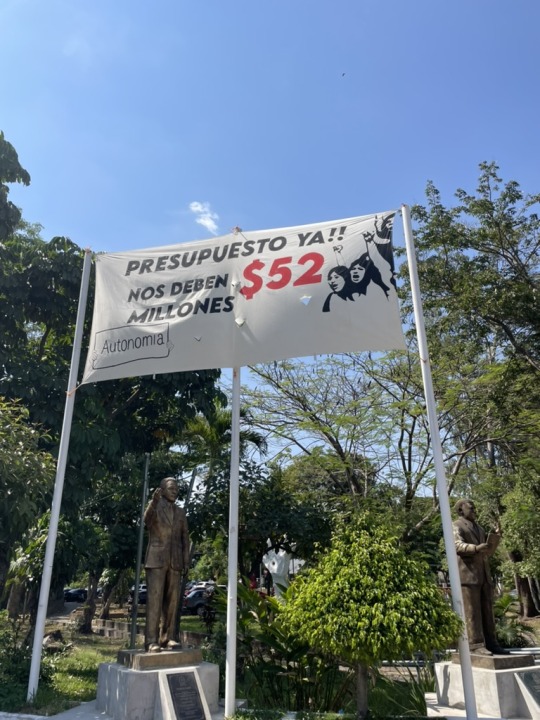
Mmmmm I’m trying to think of what else to tell y’all.
In a great big contrast from last year, I spent most of Semana Santa shut in my room studying, instead of being out in the field doing research. I was kind of bummed that I didn’t participate in any of the festivities but I really needed to spend time catching up on work. Though I did observe things here and there! Which was refreshing! It’s crazy how seriously Easter is celebrated here…
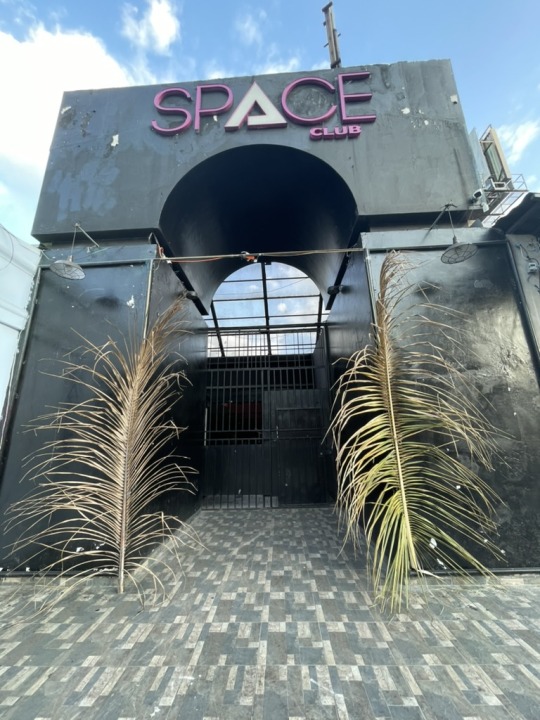

My one roommate, who has since moved out, and I had a lot of fun while we lived together. We ate lots of Chinese, got close with our vigilantes, found some good vintage pieces for them to sell on their Depop, talked a lot of shit about our landlord, sang a lot of karaoke, contemplated contemporary politics, and experienced life as two idiots abroad. I’m gonna miss them but I’m sure our paths will cross again.


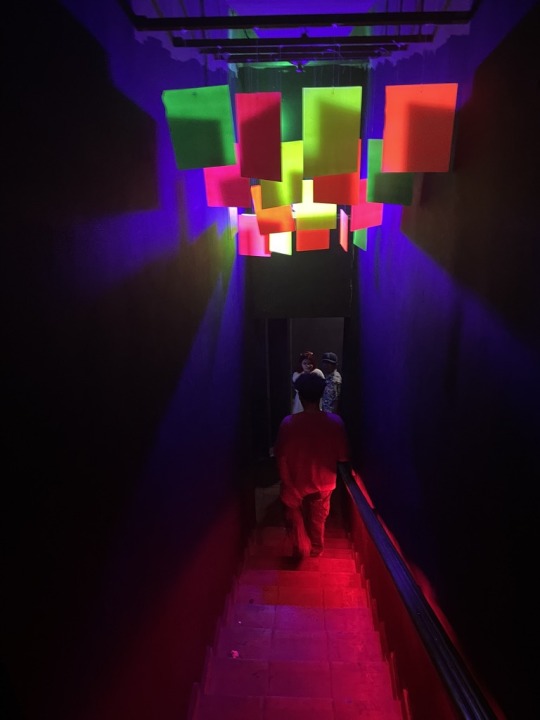
Speaking of roommates, my other roommate and I are going to start going on walks together which is so refreshing because I’ve missed going on walks!
Though, today I did have a really nice walk by myself at dusk. It had finally cooled down a little so I plugged in my headphones and listed to Court and Spark and just walked and walked. I felt like Forrest Gump.
I’ve made some pieces of art that I’m pretty proud of. I’m so glad that I’ve had bursts of creativity after what feels like such a long stint without any. I just really hope I can get more on top of things and start throwing on the wheel again. I love my collages and I find peace through my poetry, but there’s nothing like making stuff out of mud!




I’m also starting to offer my spiritual services to people to have more spending money for myself and to support projects my peers and I are pursuing. If you want a reading or need some type of spiritual work done don’t hesitate to reach out to me!

Oh!!! I also have finally gotten all the paperwork that I needed to get in to prove that Miami University is a real and legally operating institution of higher education in the US!!! Now I just must wait for approval from the Salvadoran government. Fingers crossed!!!
I think that’s it??? Lots to juggle, lots to look forward to! Miss and love you all lots. I hope that I’ll get to see those of you that actually read this when I come home. Take care of yourselves and know that I’m always just a call away if you need anything. XOXO!

youtube

youtube

youtube
Z
2 notes
·
View notes
Text
Monday, November 4, 2024
Record numbers of wealthy Americans are making plans to leave the U.S. after the election (CNBC) A growing number of wealthy Americans are making plans to leave the country in the run-up to Tuesday’s election, with many fearing political and social unrest regardless of who wins, according to immigration attorneys. Attorneys and advisors to family offices and high-net-worth families said they’re seeing record demand from clients looking for second passports or long-term residencies abroad. While talk of moving overseas after an election is common, wealth advisors said this time many of the wealthy are already taking action. Dominic Volek, group head of private clients at Henley & Partners, said the number of Americans making plans to move abroad is up at least 30% over last year. A survey by Arton Capital, which advises the wealthy on immigration programs, found that 53% of American millionaires say they’re more likely to leave the U.S. after the election, no matter who wins. Younger millionaires were the most likely to leave, with 64% of millionaires between 18 and 29 saying they were “very interested” in seeking so-called golden visas through a residency-by-investment program overseas. The ultra-wealthy also increasingly see citizenship in one country as a concentrated personal and financial risk. Just as they diversify their investments, they’re now creating “passport portfolios” to hedge their country risk. Others want a non-U.S. passport in case they’re traveling to dangerous countries or regions hostile to the U.S.
The shattered lives of Paiporta at the epicenter of Spain’s floods (AP) The pictures of the smiling toddlers on the wall somehow survived. Most everything else in the daycare—the cradles, the highchairs, the toys—was ruined when a crushing wall of water swept through Paiporta, turning the Valencia municipality of 30,000 into the likely epicenter of Spain’s deadliest natural disaster in living memory. Authorities say at least 62 people died in Paiporta, and local media have labeled Paiporta the “ground zero” of the floods. Four days have passed since the tsunami-like floods swept through the southern outskirts of Valencia city, covering many communities with sticky, thick mud. Many streets in Paiporta remain impassable to all vehicles but bulldozers, stacked as they are with piles of sodden furniture and household items and countless wrecked cars. Every foot is caked with mud. Some people wield poles to steady their step as if walking these streets is a hike through a marsh. Lidia Giménez, a school teacher, watched from her second-story apartment as the usually dry canal that divides the town went from completely empty to overflowing within 15 minutes. She called the aftermath of the flood “a battlefield without bombs.” And it happened without a drop of rain falling on Paiporta. The storm had unleashed a downpour upstream. That deluge then hurled toward Paiporta and other areas closer to the Mediterranean coast. The destruction could take weeks to clean.
Split on Economic Policy Puts Germany’s Government at Risk of Collapse (NYT) Germany’s three-party coalition government, wracked by infighting and policy paralysis over a stagnant economy, is teetering on the brink of collapse. It does not look likely to last until the next scheduled elections in September 2025 and could fall imminently over a nasty budget debate that comes to a head this month, analysts say. The main political parties are already laying out their campaign positions, and coalition leaders are barely talking.
Russia Showers Cash on Men Enlisting in Ukraine War, Bringing Prosperity to Some Towns (NYT) Expensive new cars and motorcycles crowd the streets. Apartment prices have more than doubled. And once-strapped residents are suddenly seen wearing fur coats and carrying ostentatiously overflowing grocery bags. That is how one resident of a small, long-impoverished industrial city in Siberia describes her hometown these days. The explanation for the burst in prosperity lies in the isolated cemetery, with rows of Russian flags marking the new graves of soldiers killed in Ukraine, and also downtown, where a billboard lists the scores of local men who went to fight. The Kremlin has been showering cash on men who enlist. It wants to avoid an unpopular draft, while also addressing the lack of men with sufficient patriotic zeal to join up. There are large signing bonuses, fat monthly salaries and what Russians call “coffin money,” a substantial payment to the families of the tens of thousands of soldiers killed in battle. The money is changing the face of countless Russian backwaters like the Siberian city. “The allure of extremely high salaries and other benefits has been a major factor in attracting voluntary recruits, especially from relatively poor regions,” said a report issued this year by the Bank of Finland’s Institute for Emerging Economies.
India protests Ottawa’s allegation its home minister ordered targeting of Sikh activists in Canada (AP) India officially protested on Saturday the Canadian government’s allegation that the country’s powerful home minister Amit Shah had ordered the targeting of Sikh activists inside Canada, calling it “absurd and baseless.” Relations between the two countries soured after Prime Minister Justin Trudeau said last year there were credible allegations the Indian government had links to the assassination of Sikh activist Hardeep Singh Nijjar in Canada. India has vehemently rejected the accusation. Canadian authorities have repeatedly said they shared evidence with India, whose officials deny being provided with any proof. Shah, who is 60 years old, is responsible for India’s internal security, as the country’s home minister. He is widely considered the second most powerful politician in India after Prime Minister Narendra Modi. Shah has also been a close aide of Modi for decades. Canada is not the only country that has accused Indian officials of plotting an assassination on foreign soil. The U.S. Justice Department announced criminal charges in mid-October against an Indian government employee in connection with an alleged foiled plot to kill a Sikh separatist leader living in New York City.
China Faces a Dilemma With North Korean Troops Pouring Into Russia (WSJ) The swift militarization of ties between North Korea and Russia makes one country particularly uncomfortable: China. Beijing often aligns with Moscow and Pyongyang on global politics, including a mutual disdain for the U.S.-led world order. But North Korea’s deployment of thousands of troops to the Russian front lines with Ukraine poses fresh risks for China. A chief concern for Beijing is how a combat role for the North Koreans could invite even greater military partnerships between the U.S., Western Europe and its Asia-Pacific allies. China has long been critical of what it sees as mission creep by the North Atlantic Treaty Organization, which has expanded ties in recent years with Australia, Japan, New Zealand and South Korea. Beijing sees those moves as harming its interests and regional stability. China has long viewed such defense groupings as a Western tool to constrain its rise as a global power. The North Korean troop deployment to Russia—estimated at roughly 10,000 overall by U.S. officials—is unacceptable for China because it wants to see fighting stop, said Zhu Feng, director of the Institute of International Studies at Nanjing University. “It not only brings a new strategic entanglement to the Ukraine war, it also signals an expansion of the war,” Zhu said. Beijing may fear the conflict “will now become an intercontinental engagement,” he added.
US flies long-range bomber in drill with South Korea, Japan in reaction to the North’s missile test (AP) The United States flew a long-range bomber in a trilateral drill with South Korea and Japan on Sunday in response to North Korea’s recent test-firing of a new intercontinental ballistic missile designed to strike the U.S. mainland, South Korea’s military said. North Korea on Thursday tested the newly developed Hwasong-19 ICBM, which flew higher and stayed in the air longer than any other missile it has fired. North Korean leader Kim Jong Un called it “an appropriate military action” to cope with external security threats posed by its rivals. On Sunday, the U.S. flew the B-1B bomber to train with South Korean and Japanese fighter jets near the Korean Peninsula, demonstrating the three countries’ firm resolve and readiness to respond to North Korea’s advancing nuclear and missile programs, South Korea’s Joint Chiefs of Staff said in a statement.
Iran’s supreme leader threatens Israel and US with ‘a crushing response’ over Israeli attack (WSJ) Iran’s supreme leader on Saturday threatened Israel and the U.S. with “a crushing response” over attacks on Iran and its allies. Ayatollah Ali Khamenei spoke as Iranian officials are increasingly threatening to launch yet another strike against Israel after its Oct. 26 attack on the Islamic Republic that targeted military bases and other locations and killed at least five people. Any further attacks from either side could engulf the wider Middle East, already teetering over the Israel-Hamas war in the Gaza Strip and Israel’s ground invasion of Lebanon, into a wider regional conflict. The 85-year-old Khamenei had struck a more cautious approach in earlier remarks, saying officials would weigh Iran’s response and that Israel’s attack “should not be exaggerated nor downplayed.” Iran has been dealing with problems at home, as its economy struggles under the weight of international sanctions and it has faced years of widespread, multiple protests. After Khamenei’s speech, the Iranian rial fell to 691,500 against the dollar, near an all-time low. It had been 32,000 rials to the dollar when Tehran reached its 2015 nuclear deal with world powers. Iran will mark the 45th anniversary of the U.S. Embassy hostage crisis this Sunday, following the Persian calendar. The Nov. 4, 1979, storming of the embassy by Islamist students led to the 444-day crisis, which cemented the decades-long enmity between Tehran and Washington that persists today.
Israel Says Elite Naval Commandos Abducted Hezbollah Operative (NYT) Israeli naval commandos, ferried by speedboats, captured a man Israel called a senior Hezbollah operative in a sea-and-land operation on Friday that marked the deepest known incursion yet by Israeli forces into Lebanese territory during this war. An Israeli military official said the forces brought the man back to Israel for interrogation. The operation was carried out by an elite Israeli naval commando unit, Shayetet 13, which is akin to the U.S. Navy SEALs, the official added. The commandos landed early Friday along the Mediterranean coastline in Batroun, a city about 20 miles north of the capital, Beirut. They abducted the man, identified by Lebanese officials as a ship captain named Imad Ahmaz, from a nearby residential building before leaving by speedboats. Batroun, a predominantly Christian city, is not a support base for Hezbollah, but it has been swamped in recent weeks by residents of nearby Beirut who have fled Israel’s bombing campaign.
Still wrecked from past Israeli raids, hospitals in northern Gaza come under attack again (AP) They were built to be places of healing. But once again, three hospitals in northern Gaza are encircled by Israeli troops and under fire. Bombardment is pounding around them as Israel wages a new offensive against Hamas fighters that it says have regrouped nearby. As staff scramble to treat waves of wounded, they remain haunted by a war that has seen hospitals targeted with an intensity and overtness rarely seen in modern warfare. All three were besieged and raided by Israeli troops some 10 months ago. The Kamal Adwan, al-Awda and Indonesian hospitals still have not recovered from the damage, yet are the only hospitals even partially operational in the area. Medical facilities often come under fire in wars, but combatants usually depict such incidents as accidental or exceptional, since hospitals enjoy special protection under international law. In its yearlong campaign in Gaza, Israel has stood out by carrying out an open campaign on hospitals, besieging and raiding at least 10 of them across the Gaza Strip, some several times, as well as hitting multiple others in strikes.
1 note
·
View note
Text
NEW THIS MORNING: The 3rd new episode of 'The Amazing Digital Circus' and filing COCs of COMELEC shifts on the double, hitting early morning SPSI from NGCP in Negros Oriental [#FIRSTonOneNETnews]

(Written by Rhayniel Saldasal Calimpong / Freelance News Writer, Online Media Reporter and News Presenter of OneNETnews)
DUMAGUETE, NEGROS ORIENTAL -- Negros Oriental Electric Cooperative 2 (NORECO II) announced last Monday (September 30th, 2024) that the power service interruption (PSI) in selected municipalities of Negros Oriental will schedule in on Saturday early morning from 4am to 8am, as originally scheduled from 6am to 12nn (Dumaguete local time).
Four (4) local substations covering Pulantubig, Bagacay, Dauin and Siaton, as affected from 'Barangay Señora Ascion' (formerly Calo) in San Jose, to the entire area of Sibulan, Dumaguete, Valencia, Bacong, Dauin, Zamboanguita and Siaton.
Citing from 3rd district of Negros Area at National Grid Corporation of the Philippines (NGCP) named 'Lope L. Cañete', the NGCP will de-energize its Amlan–Siaton 69-kilovolt (kV) transmission line to facilitate the tapping activities of newly completed 10 megavolt-amperes (MVA) Sibulan substation of this said regional electric company along Amlan-Siaton 69kV line.
Because of changing timeslots in PSI, the Commission on Elections (COMELEC) accommodate their request on Wednesday (October 2nd, 2024), in relation to the filing of Certificate of Candidacy (COCs) for the upcoming national and local elections. While internet TV station 'OneNETtv Channel' (DYDZ-DTV Ch. 8) in Dumaguete City reschedules the 9am hour, originally from 6am, with the paid streaming simulcast of the American streaming provider 'Netflix' for the upcoming halloween-themed web-series episode of 'The Amazing Digital Circus' on October 5th from an independent Australian animated production company 'Glitch Productions'.
Power was restored this morning within half-hour early at 7:35am as both NGCP and NORECO II jointly apologized for any inconvenience caused by the scheduled early morning PSI, acknowledging that it may have disrupted the routines of those preparing for a weekend workday, or those hoping to enjoy a restful morning at home in Dumaguete City and Negros Oriental by watching the 3rd new episode of TADC on both YouTube and Netflix app with mobile internet data on your smartphones. Back-up generators and expensive power banks is a plus.
They emphasized that the adjusted schedule was necessary to complete essential maintenance work while minimizing disruption to daily activities and upcoming events in this said region for the Dumagueteños and Negrosanons.
PHOTO COURTESY: Rhayniel Saldasal Calimpong (Freelance Photojournalist, Online Media Reporter and News Presenter of OneNETnews) BACKGROUND PROVIDED BY: Tegna
SOURCE: *https://www.instagram.com/p/DAhaPPISZR9/ [Referenced IG Post #1 via NORECO II] *https://www.instagram.com/p/DAnWSvxylhk/ [Referenced IG Post #2f via NORECO II] *https://www.youtube.com/watch?v=bKjfw77cxeQ [Referenced YT VIDEO via GlitchProductions] and *https://www.netflix.com/title/81936142 [Referenced Homepage Microsite Info via NTFX]
-- OneNETnews Online Publication Team
#local news#dumaguete#negros oriental#new this morning#NGCP#NORECO II#TADC#the amazing digital circus#COMELEC#early morning#fyp#awareness#scheduled#brownout#first on OneNETnews#OneNETnews
0 notes
Text
National Institute of Research and Development [Rewritten]
Library of Circlaria
Blog Posts
The content of this entry remains largely unaltered from the previous version; although some minor changes have been made.
Establishment:
The National Institute of Research and Development was founded in 1383 on the property of the former North Kempton William Solomon Airfield, located in the former municipality of North Kempton, now renamed Maxima, in the province of Nintel. The purpose of the Institute has since been to provide a democratic, objective, and all-inclusive foundation of education for the Independent Commonwealth State of Retun.
Structure:
The hierarchy of the Institute consists of one National Class located in Maxima, one Class for every Province and Territory in its respective capital (including Nintel, whose Provincial Class is located in the capital city of Maryk), one Class for every County, one Class for every Municipality or Borough, and one Class for every Estate.
With exception to the National Class, every Class on every hierarchical level consists of four different roles: Scholar, Lead Scholar, Representative Scholar, and Bookkeeper. The Scholar is the most numerous and most basic role of the Institute. Every candidate is admitted into the Institute initially as a Scholar by a majority vote of Approval by the Class in which he or she is attempting to enroll. The specific requirements of a Scholar vary from Class-to-Class but consist primarily of listening and providing Approval or Objection statements for a minimum number of research thesis presentations, proposals, seminars, and debates. Scholars also vote on the candidacies of fellow Scholars, Lead Scholars, Representative Scholars, and Bookkeepers. Lead Scholars are chosen by the simple majority vote of a Class of Scholars to preside over the said Class for a term of six years. The role of a Lead Scholar is not only to serve the requirements of fellow Scholars but also to oversee facility operations and to facilitate and preside over the functions of presentations, proposals, seminars, and debates. A Representative Scholar, when eligible, is chosen by the majority vote of a Class of Scholars to apply via a proposal for admission into the Class of the next hierarchical level up; for example, from an Estate Class to a Municipality Class, or a County Class to a Provincial Class. Each Representative Scholar fulfills the role of a Scholar in that new Class, and, when eligible, may be chosen by that Class to ascend to the next hierarchical level in a similar fashion. A Bookkeeper is chosen by a Class of Scholars to serve his or her new role until retirement or discharge. The role of a Bookkeeper is to schedule proposals, seminars, and debates. Furthermore, the Bookkeeper will also be required to interpret the results of Approval and Objection statements made by Scholars and determine which statements constitute the majority of the Class.
For the National Class, the roles of the Scholar and Bookkeeper exist in the same manner and serve the same purpose as the lower levels, with the exception that the Bookkeeper is chosen by every member of the Institute Scholar Body down to the Estate level. Also elected in the same fashion is the National Class equivalent of Lead Scholar, named the Chief Scholar. The Chief Scholar is roughly similar in figurative representation to the Headmaster of a traditional University, except with more limited administrative power. The National Class equivalent of a Representative Scholar is the title of Academic Ambassador, the candidates of whom may serve one of two roles: Ambassador to the Commonwealth Federal Government, or Ambassador to a government abroad.
Process- from Scholar to Chief Scholar:
Most Scholars enter the Institute through the Estate Class level. However, there is no rule barring a candidate from entering the Institute at a higher level. Nevertheless, every Scholar is subject to the following processes:
In order to enroll into the National Institute of Research and Development, a candidate must first submit a letter of "Intent to Research" to the Bookkeeper of the desired Class in which he or she wishes to enroll. Such a letter must state a question or a problem, state a hypothesis, and state an overall method of research. Upon receiving this, the said Bookkeeper will schedule the candidate to present the formal proposal to the Class. The candidate will then submit official documentation and deliver the formal presentation which states the question, proves the conduct of preliminary research, states the hypothesis, details the expected method of field testing or study as well as the gathering of information, and gauges the criteria for each possible outcome that proves or disproves the initial hypothesis. Such a presentation will be followed by a question-and-answer session with the attending Scholars, at the end of which every Class Scholar in attendance, including the Lead Scholar, will each cast a statement of Approval or a statement of Objection as a vote; and each will do so without cross-disclosure and will place his or her written statement in a secure envelope. All envelopes will be delivered to the Bookkeeper, who will count them and determine the majority vote. If the majority of the Class casts Approval statements, the candidate will be admitted into the Institute as a Scholar of the Class. Any Objection statements, in this case, would still be delivered to the newly-admitted Scholar for the said Scholar to determine whether or not to follow through with them. If the majority of the Class casts Objection statements, the candidate will not be admitted, but will be given a choice to follow through with the Objection statements and make revisions, or to approach the Class with a completely new research proposal. There are no limits on the number of attempts a candidate is permitted to make in order to enroll; the candidate may make as many proposals as desired. If there is a tie between Approval and Objection statements, the Bookkeeper will schedule and preside over a special Class debate, during which every Scholar, including the Lead Scholar and candidate, will be given a chance to make an argument and rebuttal as necessary. At the end of the debate, the Class will vote on a verdict before the Bookkeeper delivers the final decision.
If successfully admitted into the Class, the new Scholar will be expected to fulfill Class requirements which include attending a minimum number of seminars, presentations, proposals, and debates, as well as casting Approval and Objection statements as necessary. When the Scholar carries out his or her own thesis project, the Lead Scholar will provide or schedule all of the resources necessary for the process to be done. At the conclusion of the project, the Scholar will present his or her findings to the Class in a seminar and will state, with concise reasoning, whether the findings prove or disprove the initial hypothesis. The Lead Scholar and Class Scholars in attendance will then evaluate the presentation of the thesis with each person casting a statement of Approval or Objection. If the majority of the Class casts Approval statements, the presenting Scholar will earn an Accreditation on Behalf of the Class for the Research Thesis. The thesis will subsequently get published in the Journal of the Institute along with the Approval and Objection Statements, which will be subject to re-evaluation by later Scholars, while the presenting Scholar will become eligible to run for the position of either Bookkeeper, Lead Scholar, or Representative Scholar with regard to existing vacancies. In contrast, if a majority of the Class casts Objection statements, the Scholar will not earn Accreditation and will not be eligible to run for the previously-mentioned elected positions. However, the said Scholar will have several choices: follow through with the Objection statements and revise the thesis as necessary to present again (likewise, there exists no limit on the number of attempts for Accreditation), challenge the majority decision through a Class debate scheduled and presided over by the Bookkeeper, or begin the entire process with a completely new research proposal. With the third choice, the Scholar would still remain enrolled in the Class and the Institute. If there was a tie in the initial vote following the presentation of the thesis, there would, again, be a Class debate according to the aforementioned protocol.
In the event that a Scholar earns Accreditation for his or her thesis and is made eligible to run for the elected speciality positions, it is more likely than not that the said Scholar will run as a Representative Scholar on behalf of his or her currently-enrolled Class for the next Class in the ascending hierarchy. In order to attain that position, a Scholar will submit a new research thesis to the former Class to receive Approval and Objection statements, with the majority of Approval statements warranting the successful attainment of the Representative Scholar position. When the candidate successfully attains the role, he or she will forward the proposal to the Bookkeeper of the Class in the next level up. Recently, the Principles of the Institute (the equivalent of a University Constitution) was amended so that a prospective Representative Scholar to the Municipality Class would be able to prove that a bias in his or her Estate Class led to a "wrongful Objection Majority" and allow the Municipality Class to agree, by a majority of Approval statements, to give an Admission Override, allowing the Scholar to enter the Municipality Class. The same holds true for County Classes, Provincial Classes, and the National Class.
Advancing from the Estate through the National Classes, facility venues will increase in size in order to accommodate larger numbers of people in attendance. The drawback to this is that the higher up the hierarchy a Scholar goes, the more in advance the Scholar's seminars, debates, and proposals will need to be scheduled.
For the National Class, the role of an Academic Ambassador differs slightly from that of a Representative Scholar, in that the audience for the Ambassador represents an entity outside of the Institute. Therefore, there will be differing processes for differing purposes for how the presented thesis is handled. For government entities serving as audiences, the Ambassador's role is usually to give research-based advice (either from his or her own thesis or the thesis of another Scholar) regarding important policy decisions.
Contributions:
Since its establishment, the National Institute of Research and Development has published significant theses in science, history, politics, and other fundamental fields. For example, the Institute has been the driving force behind constant changes in the ever-dynamic darkfire industry. Institute theses have also shaped economic policies regarding the relationship between the scriptfire and dymensional plane industries, as well as crafted important diplomatic and political decisions by the Commonwealth government with regard to international relations. One notable figure from the Institute includes Rachel Croft, who studied the relationship in cyclonic storms between the plains of Nintel and the Inland Sea. Other important figures include Former Prime Minister Meghan Wen (who also served as the Chief Scholar between 1406 and 1429) as well as Former Prime Ministers James Lawrence Kontacet, Vet Silonk, Stanley Arland Moore, and Mary Ann Heits.
0 notes
Text
BJP's OBC Strategy in Haryana: Enhancing Welfare Ahead of Assembly Elections
The BJP in Haryana is gearing up for a potential hat-trick in the upcoming Assembly elections by focusing on consolidating support among the Other Backward Classes (OBCs). With an eye on securing a third consecutive term, the party has announced significant measures aimed at the OBC community, including raising the creamy layer income cap from Rs 6 lakh to Rs 8 lakh and increasing reservations in local bodies such as panchayats, municipal corporations, and municipalities.

OBCs constitute approximately 30% of Haryana's voter base, making them a crucial demographic alongside Jats and Scheduled Castes. Following a setback in the recent Lok Sabha elections, where the BJP lost ground to the Congress in key constituencies, the party has intensified its welfare initiatives and is rolling out additional benefits to garner support.
Union Home Minister Amit Shah has been pivotal in these efforts, making recent visits to the state to announce these welfare measures. Emphasizing continuity, Shah affirmed Chief Minister Nayab Singh Saini’s leadership role and unveiled policies during events focused on backward classes in Panchkula and Mahendragarh.
Reflecting on the BJP's longstanding commitment to OBC welfare, Union Cabinet Minister Krishan Pal Gujjar highlighted ongoing initiatives like the Pradhan Mantri Vishwakarma Yojana and constitutional empowerment of the OBC Commission under Prime Minister Narendra Modi’s administration.
The BJP’s strategy also includes strategic appointments within the state’s leadership, ensuring representation from diverse communities. This approach aims to consolidate support across different voter segments amidst a shifting political landscape with the dissolution of alliances and realignment of electoral dynamics.
Looking ahead, the BJP plans extensive outreach across Haryana’s rural and urban areas, showcasing developmental projects and engaging with local communities to bolster their electoral prospects. With ongoing efforts to deliver tangible benefits to OBCs and other marginalized groups, the party is poised to intensify its campaign with further announcements expected in the run-up to the elections.
0 notes
Text
Reminder to the USAmericans in this election year to start looking at local elections NOW. Local issues WILL have more immediate actual effects for you & your neighbors, and sometimes they're split up in weird random ways. I'm sure there's a totally reasonable explanation for why my municipality, for example, has scheduled an entire separate voting day JUST for the police millage and nothing else - in MAY.
1 note
·
View note
Text
Lagos Ports: TTP operations needs legal backing - Expert

The Publisher of MMS Plus newspaper, Mr Kingsley Anaroke, says there is need for the Truck Transit Park (TTP) Ltd., operators of the electronic call-up system for trucks called 'Eto' in the port to have a legal backing. Anaroke gave the advice at the Maritime Reporters' Association of Nigeria (MARAN) breakfast meeting with the theme, "Repositioning ETO Call-up System for Optimal Performance', on Thursday, in Lagos. He said that to back this proposition up with legislation, the electronic call-up system operates within the Apapa municipal jurisdiction as such all that was needed was to enact a Bye- Law or an Ordinance, which was the responsibility of elected councilors to carry out to give it effect. He also advised the leadership of the Nigerian Ports Authority ( NPA) to license two more electronic call –up companies for competition and keep reviewing and improving the infrastructure. According to him, enforcement as well as prosecuting officers or culprits in electronic call –up racketeering to deter others was of essence. ``I recommended the use of mobile court to adjudicate Eto cases with measures of penalties capable of discouraging fraud or cutting corners,'' he said. He raised a concern that the platform had shifted from problem-solving to revenue generation with the handlers neglecting the real issues and placing premiums on the volume of vehicles they receive. He asserted Eto had yielded the sum of N34.4billion in the two years of operation using N21,500 truck booking call- up fee charged by TTP as basis of calculation. Also, Mr Remi Ogungbemi, Chairman, Association of Maritime Truck Owners (AMATO) said to address the challenges of automation system, the association call for the introduction of the Truck Scheduler System (TSS) to help improve the lapses in the Eto process. He noted that the system had been presented at the Nigerian Ports Authority (NPA) January monthly meeting and a committee set up to look into the system. He also advised those that indulge in the practice of making fake Minimum Safety Standard (MSS) sticker and Eto ticket to desist from such act, ``I equally advise the buyers of black market call up to stop, because if there are no buyers, there will be no sellers,'' he said. Earlier, Mr Godfrey Bivbere, President of MARAN, noted that despite Eto positive impacts, the electronic call-up system had faced criticism, with some operators alleging that it had worsened the traffic crisis and facilitated corruption and extortion. According to Bivbere, it was based on this concerns that MARAN as the watchdog and agenda setting body for government decided to put up the meeting. ``Critical stakeholders have raised concerns that the platform had deviated from its original purpose and turned into a source of revenue generation and that the port environment has returned to the pre-Hadiza Bala-Usman era. ``We are here to discuss workable solutions to rectifying these anomalies and ensure that the platform delivers on the mandate for which it was created to the benefit of the industry at large,'' he said. Read the full article
0 notes
Text
Brazilians vote in tense local elections

Brazilians began voting in the first round of local elections on Sunday for mayors, deputy mayors and councilors in the country’s 5,569 municipalities.
In Sao Paulo, three mayoral candidates are running neck-and-neck, including incumbent Ricardo Nunes, left-wing lawmaker Guilherme Boulos and self-help guru turned far-right politician Pablo Marçal. A runoff is scheduled for Oct. 27.
Much of the attention leading up to Sunday’s vote has been on Brazil ’s biggest city, where the race has been marred by episodes of violence involving Marçal.
Last month, José Luiz Datena, a former TV presenter turned candidate, slammed Marçal with a metal chair during a televised debate following references to allegations of sexual misconduct. In a later debate, an aide to Marçal thumped an adversary’s counterpart, resulting in a bloody face.
Marçal sparked more controversy on Friday, when he published on social media a falsified medical report indicating cocaine use by Boulos. The document was widely debunked by local media that pointed to inconsistencies including the fact that it was signed by a doctor who had passed away.
Continue reading.
#brazil#brazilian politics#politics#brazilian elections#brazilian elections 2024#image description in alt#mod nise da silveira
9 notes
·
View notes
Text
WILKES-BARRE, Pa. — When the Luzerne County Board of Elections finally approved its motion Wednesday night allowing two ballot drop boxes to be placed ahead of the presidential election in 27 days, there was, oddly, little to no reaction from the people who had spent the past several weeks bickering, complaining and even shouting about drop boxes.
That’s because — even after weeks of debate and an hour of public comment this evening alone —“there was never a doubt” the majority Democratic elections board would eventually vote in favor of the boxes, explained Theodore Fitzgerald, a Republican helping lead the effort against the boxes.
“As far as a secure election and all, we’re not confident because we don’t trust a lot of things in Luzerne County,” Fitzgerald told me after the vote.
Fitzgerald oversees an independent group of grassroots Republicans in the county (resulting in the existence of both the Luzerne County Republicans, which he leads, and the official GOP apparatus, the Republican Party of Luzerne County), and he’s one of at least a dozen activists who show up regularly to board meetings to confront members and drag out public comment sessions.
This week’s meeting of the Luzerne County Board of Elections, its final scheduled meeting before the election, was anything but a sleepy municipal gathering.
Across three-and-a-half hours, the meeting featured one public commenter calling the drop-box supporters “militant fascists and socialists”; some grandstanding by a national GOP activist who said he wants to turn Luzerne County “blood red” for Trump, but “peacefully”; and a threat from the Democratic board chair to throw out a speaker who argued that elections employees should have to take lie detector tests.
“I’m embarrassed,” said attendee Andrea Glod, a retired teacher from Wilkes-Barre, the county seat. “I don’t even know who these people are who are talking. And they keep talking about ‘legitimate comment,’ and it’s to stand up there and say Kamala Harris is — I don’t know even what they’re [saying] now, controlling the weather?”
This is what election administration has turned into in top swing states, ever since Donald Trump lost the 2020 election and falsely blamed it on rigged votes in Arizona, Georgia, Michigan, Pennsylvania and Wisconsin. Trump’s disproven claims made local elections boards like Luzerne’s ripe for politicization and chaos, especially as Trump suggests he will contest the results of next month’s election like he did four years ago if he loses again.
Luzerne County, which has become a national symbol of the flight of white working-class voters from the Democratic Party after voting twice for Barack Obama and twice for Trump, is unlikely to decide the election in Pennsylvania — and thus, perhaps, the country — by itself. But the county offers a clear example of the confusion and drama that’s plagued the elections process in many places of national political significance since the start of the COVID-19 pandemic.
In 2020, the county made headlines when nine military ballots were found discarded in the trash several weeks before the election. A year later, a number of GOP primary ballots featured the wrong header, falsely indicating they were Democratic ballots despite listing the correct Republican candidates. And in 2022, more than a dozen polling sites ran out of paper ballots on Election Day, nearly preventing the county from certifying the results of a close election and prompting a congressional hearing.
The district attorney ended up clearing the county of any criminal wrongdoing in the 2022 incident, blaming it on high staff turnover. Luzerne is on its fifth elections director in five years — a woman who took the job at age 26 and described receiving a comment telling her she should be “drawn and quartered.” Elections staff continue to make minor errors that dominate the local news cycle and give fodder to people who want to argue the county’s elections can’t be trusted.
Luzerne County has also caught the attention of right-wing influencers broadly, including Scott Presler, a MAGA gadfly who made a name for himself organizing against Muslims. Presler claims he and his PAC, Early Vote Action, are why Republicans recently surpassed Democrats in countywide voter registration there.
“This board has a history of not making sure that every lawful vote is counted here in Luzerne County. That’s why you’re in the news,” Presler, who identified himself as a county resident, said during a public comment session, which he also used to blame Harris for the war in the Middle East.
“Luzerne County is going to vote Republican this November, and we are going to elect Donald Trump,” he promised.
Earlier this month, the ACLU filed suit against the Luzerne elections board and the county manager after the county manager announced that drop boxes would not be used in the election due to security concerns. That catapulted the issue of ballot drop boxes to the top of the last board meeting’s agenda.
“There are many ways to vote,” said Richard Morelli, a GOP board member who voted against allowing the boxes, suggesting they weren’t necessary. “You go back to before COVID, there was no such thing as disenfranchising. The people went out, they voted, they got it done.”
While Democrats broadly support absentee voting, Trump’s own views on it have been hard to pin down since 2020. Trump had once encouraged his supporters to vote via absentee ballot and drop boxes, before changing his tone and calling it “crooked.” Trump’s campaign, though, now seems to realize the folly in telling voters they shouldn’t take advantage of voting in whatever way they can: At a rally last weekend in Butler, the western Pennsylvania city where a gunman tried to kill Trump in July, Trump’s campaign projected a QR code for requesting an absentee ballot on jumbotrons prior to Trump’s remarks.
Wednesday’s board meeting featured plenty of confusion around how mail voting and the mail in general even works. A county resident, tuning in to the meeting over Zoom, suggested drop boxes are necessary because the U.S. Postal Service and Harris were engaged in a conspiracy to … deliver mail ballots to voters. A Democratic board member brushed off concerns about the catastrophic destruction of a drop box and suggested, improbably, that it would be easy to determine whose ballots had been inside.
Jamie Walsh, a GOP state House candidate, told the board he was against the boxes because both sides, but especially Democrats, regularly cheat in elections — even though widespread ballot fraud has never been proven to have occurred in any modern U.S. elections, and especially not with drop boxes.
“There’s a faction of the Democrat party that wants to cheat. I mean, let’s just face it. Let’s call a spade a spade,” Walsh said.
Denise Williams, the Democratic board chair, pointed out that 20% of people who vote absentee in the county use drop boxes because they’re safe. “That’s a significant number, and they’re not doing it for convenience,” she said. “They want it for the security of their mail ballots.”
Fitzgerald, with the Luzerne County Republicans, described the problem with drop boxes and voting by mail to me using an analogy about domestic violence: “The reason why we don’t like mail-in votes is because of intimidation. There’s a reason why when we vote in person, there’s a drape — because a husband, or wife, whoever could abuse the other, cannot force their spouse, or anybody else, to vote the way they want,” he said.
The county ultimately decided to allow two of the four drop boxes it typically deploys to be used in next month’s election.
It’s not clear there’s an immediate endgame for Fitzgerald and the anti-drop box group. Fitzgerald ticked off some objectives that are unlikely to ever materialize, either because they’re impractical or because they’d violate the law — like making sure there’s a Republican for every Democrat hired as an elections employee. He didn’t share plans to back candidates to replace any of the elections board members, some of whose terms are up as soon as next year.
Fitzgerald and the other agitators seemed to relish their combativeness with the board. “Both parties cheat. All people have hyperbole. All people call each other names. We all do it. It’s not one, it’s not the other,” Fitzgerald said.
At least on the question of how long this battle will last, Fitzgerald and Glod, a drop box supporter, seemed to be in agreement.
“This is going to be going on for the next 40 years,” Glod said on her way out of the meeting.
3 notes
·
View notes
Text
The Supreme Administrative Court annulled the Central Elections Commission's decision regarding the annulment of the machine vote. This means that Bulgarians can vote by machine on the Sunday runoff. Appeals from yesterday's vote have been dismissed.
The decision of the Supreme Court cannot be appealed. It is up to the CEC to make a decision.
The CEC canceled the machine voting for the local vote on October 29 after the scandal erupted with the recording of the hash code by the Deputy Minister of Management Mihail Stoyanov. The meeting of the Supreme Court lasted more than 5 hours.
Local Elections in Bulgaria: "I Do Not Support Anyone" is a Valid Vote

So far, 52 municipal election commissions out of a total of 265 have brought the sectional protocols and other papers and materials to the Central Election Commission, reports the National Television.
No later than 48 hours after the end of the voting - that is, by tomorrow evening, the Regional Election Commission shall adopt a decision to announce an elected mayor of a municipality, a mayor of a district, a mayor of a town hall or to schedule a second round for the election of a mayor.
In contrast to the blank ballot, the vote with the choice "I do not support anyone" is a valid vote, the deputy chairwoman and spokesperson of the CEC Rositsa Mateva commented for the National Radio:
"Those who vote 'don't support anyone' know that this is an actual vote. It would be interesting if, where there is such a case, for example, one candidate, the box 'don't support anyone' turns out to get more votes than the candidate. Unfortunately, this candidate cannot be selected as the winner, there must be a runoff." _____________
Can we get this option over here in the states please, except instead of a runoff force the parties to pick new candidates.
3 notes
·
View notes
Text
As large amounts of snow continue to batter the Maritimes from the slow-moving weather system on Sunday, some schools have closed for Monday, with the list of closures and cancellations growing. Snowfall warnings are still in effect Sunday for parts of Nova Scotia and Prince Edward Island, with some parts expected to see an additional 30 to 50 centimeters of snow.
The Halifax Regional Municipality is asking people to avoid travel unless absolutely necessary to allow crews to clear snow safely.
Areas of northern Nova Scotia are expected to see around 15 to 25 centimeters of snow, which will continue into Monday before tapering to flurries throughout the day. Environment Canada warns that conditions will deteriorate later Sunday and that visibility may be reduced to near zero at times of heavy and blowing snow. Eastern Nova Scotia is expected to see the worst of it, as Environment Canada says the area will see around 30 to 50 centimeters of snow, which will continue into Monday. Conditions are also expected to deteriorate further on Sunday as winds and snowfall intensify and visibility is reduced.
Cape Breton Police are asking people to avoid driving unless absolutely necessary. As they say, they have received multiple calls of stuck vehicles on roadways blocking snow removal and access for emergency vehicles. Winter storm warnings have also been issued for Kings and Queens Counties in P.E.I., which is expected to see an additional 15 to 35 centimeters. The highest amounts of snowfall in that region are expected over eastern P.E.I., where they may see up to 35 centimeters. Parts of Queens County may only see 15 centimeters by Monday morning.
The parking ban in Halifax will also continue all day Sunday as crews work to clean up snow, and it will continue overnight into Monday. Transit services in the Cape Breton Regional Municipality were also canceled all day Sunday due to the weather.
Power outages have been scattered across the region, with the majority being in Nova Scotia.
The by-election for District 19 in P.E.I. scheduled for Monday may be postponed if the conditions do not improve by Monday morning.
Irving Shipbuilding has also closed all day and afternoon shifts for the day, with updates regarding the back shift to come later Sunday evening. Sunday’s game between Grand Falls Rapids and the Pictou Country Weeks Crushers at the Pictou County Wellness Center has been postponed due to the weather.
The game on Sunday between the Amherst Ramblers and Truro Bearcats at the Rath Eastlink Community Center was also postponed to 7 p.m. on Tuesday due to the weather.
0 notes